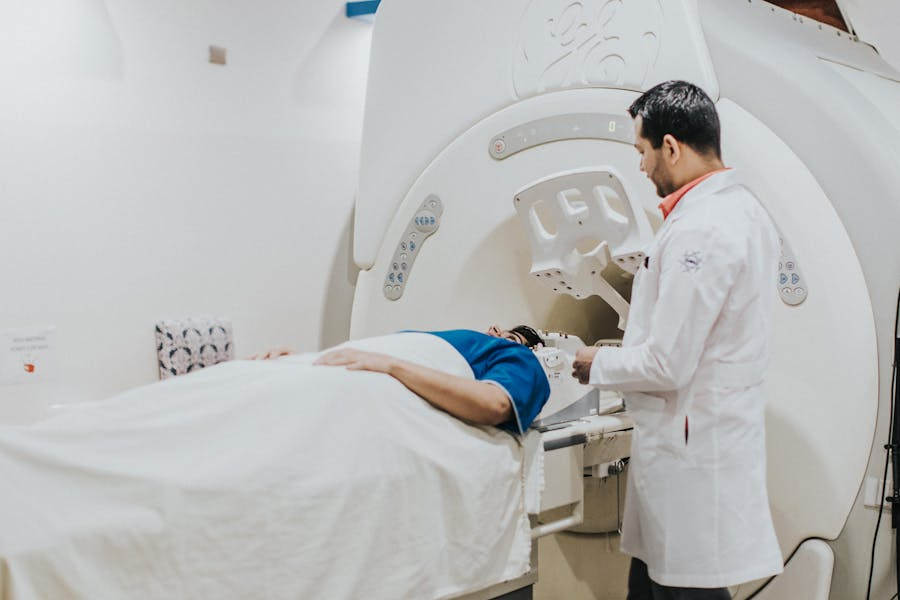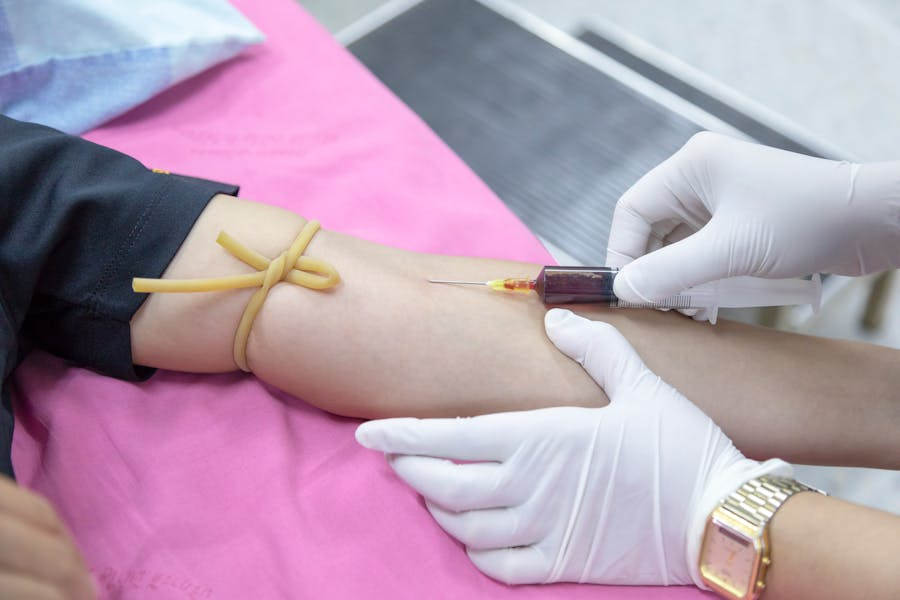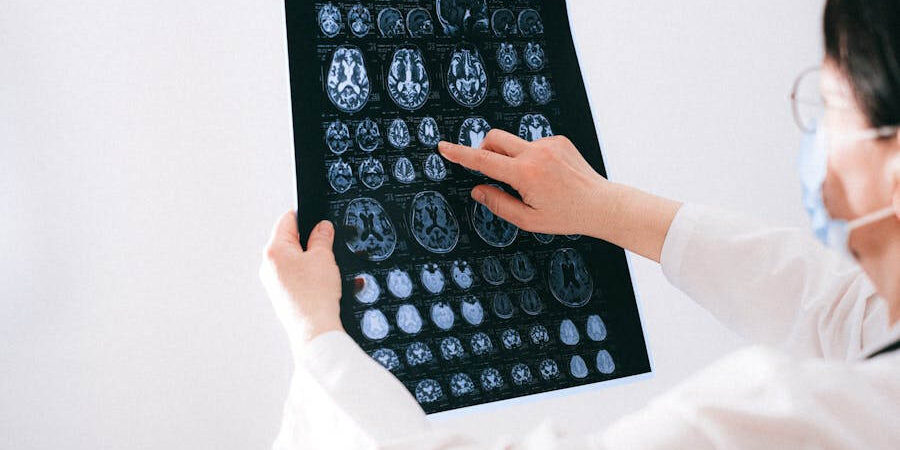Dementia News May 2025.
Here’s this month’s dementia news, you might have missed:
- There’s a revolutionary brain scan that detects Alzheimer’s years before symptoms
- Discover how Chinese villages reduced hypertension and dementia risks by training local health providers
- Speed up dementia diagnosis by starting with primary care doctors or enrolling in clinical trials for early treatment and better care plans
- Emma Heming Willis shares her caregiving journey amidst Bruce Willis’ dementia diagnosis
- Learn how building muscle over the years can safeguard your brain from dementia
- A new Alzheimer’s blood test developed by Washington University School of Medicine diagnoses and stages the disease with 92% accuracy

Breaking Ground – Detecting Alzheimer’s Before Symptoms Arise
The ability to detect Alzheimer’s disease before symptoms manifest could revolutionize early diagnosis and treatment.
A pioneering scan developed by Oxford Brain Diagnostics claims to spot early cortical changes associated with Alzheimer’s, a feat previously achievable only post-mortem.
This novel method, called “cortical disarray measurement,” leverages advanced MRI analysis to detect subtle brain alterations long before traditional MRI scans can.
Currently approved by the FDA for use in the US, this breakthrough signals hope for millions affected by Alzheimer’s.
However, its implementation in clinical settings like the NHS requires extensive validation.
As researchers like Dr. Steven Chance highlight, these advancements emphasize the potential for a transformative impact, shifting Alzheimer’s care from reactively managing symptoms to preemptively tackling the disease’s onset.
Alzheimers, #BrainHealth, #EarlyDiagnosis,#MedicalInnovation, #Neurodegeneration, #FDAApproved,

Empowering Villages to Combat Hypertension and Dementia
In China, a groundbreaking study has revealed how non-physician village health providers can significantly reduce hypertension and dementia risk.
Over four years, 300 villages trained local healthcare workers to administer blood pressure medication and guide lifestyle changes.
This led to a notable drop in hypertension and reduced dementia risks by 15%. In contrast, traditional care villages saw less improvement.
The success highlights the importance of local health interventions, particularly in areas lacking medical access.
Empowering villages not only improved health outcomes but also showcased the promise of early interventions in combating dementia.
Hypertension #Dementia #PublicHealth #CommunityCare #PreventiveCare #BloodPressure #VillageHealth

Fast-Tracking Dementia Diagnosis – A Crucial Step for Early Intervention
Recognizing and addressing dementia early can significantly affect the management of the condition.
Typically, getting a dementia diagnosis can take up to four years. However, early diagnosis is crucial as new therapies can slow cognitive decline by up to 60% in mild cases.
To expedite diagnosis, start with a primary care doctor for a neurological referral or consider a nurse practitioner for preliminary evaluation.
Testing like the Montreal Cognitive Assessment (MoCA) can be administered to check cognitive functions.
In case of delays, consider seeking recent medical graduates or enrolling in clinical trials.
These strategies help access treatment that can give valuable time for planning long-term care.
#DementiaAwareness #EarlyIntervention #CognitiveHealth #MemoryCare #MedicalAdvice #HealthcareTips #Neurology #DementiaDiagnosis

Navigating Uncertainty – Emma Heming Willis’ Advocacy in Caregiving
Emma Heming Willis, founder of Make Time Wellness, shares her journey following husband Bruce Willis’ frontotemporal dementia diagnosis.
Describing the experience as initially filled with shock and isolation, Emma highlights the absence of guidance and support.
Her upcoming book, “The Unexpected Journey,” aims to fill this void, offering a roadmap for caregivers.
Emma utilizes her platform to advocate for greater awareness and support for dementia and has actively engaged in legislative efforts.
With renowned figures like Maria Shriver, Emma emphasizes the importance of caregiving as a unifying issue across communities.
Her story is a testament to resilience in the face of daunting challenges, forging a path for caregivers in need.
#EmmaHemingWillis, #BruceWillis, #Caregiving #DementiaAwareness #BrainHealth #TheUnexpectedJourney #MariaShriver

Building Muscle – A Shield Against Dementia
A recent study highlights a compelling link between building muscle and reducing the risk of dementia.
Spanning six years, the research assessed 2,163 adults over 64 without dementia symptoms, exploring muscle loss and memory issues.
Findings revealed that memory issues increase dementia risk by 1.8 times, while muscle loss surges it by 2.4 times.
Alarmingly, those with both conditions were 2.5 times more susceptible.
This underscores the importance of muscle-building not just for a toned body but for a sharp mind too.
Resistance training strengthens brain neurons, enhancing cognitive longevity.
#MuscleBuilding, #BrainHealth, #DementiaPrevention, #FitnessResearch, #HealthyAging, #CognitiveWellness, #StrengthTraining, #BrainProtection, #MemoryBoost, #LongevityFitness

Breakthrough Blood Test Tracks Alzheimer’s Progression With 92% Accuracy
A new blood test developed by Washington University School of Medicine and Lund University can now diagnose Alzheimer’s disease and measure how far it has progressed—using just a blood sample.
By detecting the MTBR-tau243 protein linked to tau tangles in the brain, this test distinguishes between early- and late-stage Alzheimer’s with 92% accuracy and rules out other dementia causes.
It marks a critical step toward personalized treatment, helping doctors match patients with the right therapies based on disease stage.
Affordable, non-invasive, and scalable, this test could soon replace costly brain scans in clinical settings.
#AlzheimersAwareness #DementiaCare #BloodTestBreakthrough #NeurologyNews #WashUMedicine #TauProtein #BrainHealth
Dementia News May 2025 – Conclusion
If we don’t start thinking differently about dementia, like how we detect it, how we fight it, how we talk about it—we’re going to stay behind while the science moves forward.
You don’t wait until your engine blows up to check the oil. Same goes for your brain.
If you need more information about dementia or memory care, contact Applewood Our House.






